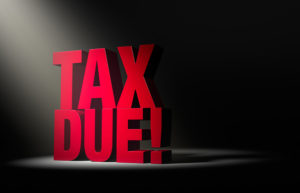Hi – It’s Mark Nusz. I ‘m here to discuss taxes with you once again, with another episode of Tax… and other necessary things. Today, I’ll focus on what happens if you don’t file your tax return?
I want to preface my comments by stressing that you should file your tax return, whether you owe or you don’t.
Now, what happens if you don’t file?
The IRS is pretty slow to act in almost all cases. If you don’t file, it will be a while until you hear from them. Maybe a long, long time.
However, if you end up owing the government money for past-due taxes, you can expect to pay those taxes, along with interest and penalties.
Your tax return and the payment are due on April 15th of each calendar year for the full previous calendar year. If you don’t pay, then you will start incurring interest charges from this day forward.
Caveat – you can get an extension to file your tax return up until October 15th, but this does not relieve you from paying what you owe on April 15th. It just allows you to file your return up to 6 months later.
If you owe the federal government money and you don’t file or pay, you can usually expect to hear from the IRS through the mail in about 6 to 9 months’ time.
The first letter will be fairly general, and will inform you that they have not received your tax return, and that you need to file it.
If you ignore this, they will generally continue to send letters to you. After a significant period of time, sometimes as much as 2 to 3 years, the IRS will file usually prepare a tax return for you. This is called a “Substitute for Return.”

Now, you will be informed of this, and you will be put on notice with some official mail to your last known address. This Notice will inform you that you have 30 days to respond, or take appropriate action, or the government will “Assess” the taxes due under this substitute tax return against you.
Notice my use of the word “assess.” Assessment is an important term in the tax world. Taxes have to be assessed against you before the IRS can try to collect them from you.
Learn More about Tax and the IRS
Schedule an Initial Consultation
Visit the Firm Website
